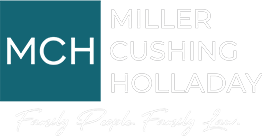Mediation is a private process in which a neutral 3rd party – a mediator – helps two other parties discuss and try to resolve their dispute. The mediator assists and leads the parties toward their own resolution. The mediatorcannot decide the outcome, but rather, helps the parties understand and focus on the important issues needed to reach a resolution. The mediator does have the power to help the parties find a resolution that is mutually acceptable through direction and focus, though.
Yet, the only people who can resolve the dispute in mediation are the parties themselves. For this reason, mediation requires cooperation and a willingness to compromise on difficult issues. Otherwise, the mediation will fail and litigation will become necessary.
Questions to Ask Before Mediation
If you are facing separation or divorce from your spouse, then there are important considerations to think about when choosing a mediator. Picking the right mediation gives your mediation a much more likely chance of success. Oppositely, the wrong mediator could make mediation futile, only adding to frustrations.
Ask yourself these questions when picking a mediator for your case:
- Does your mediator have significant legal knowledge of family law issues and experience handling these cases?
- Is your mediator certified, and are they bound by ethical standards set up by a governing body?
- Does your mediator have a good reputation in the legal community?
Ask these questions of any mediator you and your spouse are considering for your divorce or separation. As the client, you are entitled to know the answers to these questions beforehand, and you should feel empowered about asking questions that will have an effect on your future.
Here at Miller Cushing Holladay in Charlotte, we have three family law attorneys on staff who are Certified Family Financial Mediators. By earning their certifications, they have proven their extensive knowledge of family law and how mediation can resolve conflicts. Furthermore, they must always act with the utmost legal ethical standards to ensure mediation processes are unbiased and beneficial to all parties.
Call us at (704) 810-1400 today to learn more about our mediation practice, and how we can help resolve your case amicably.


.1909261336550.jpg)